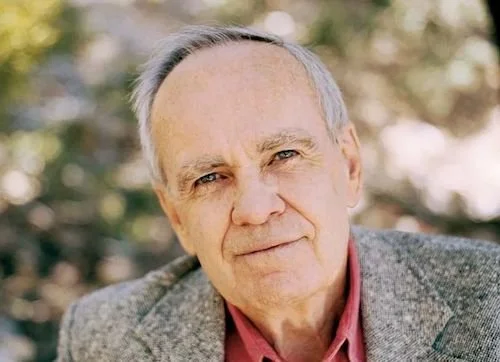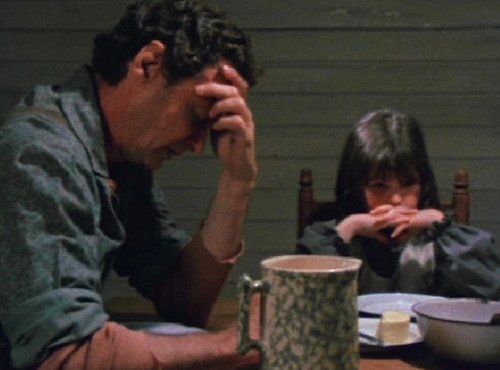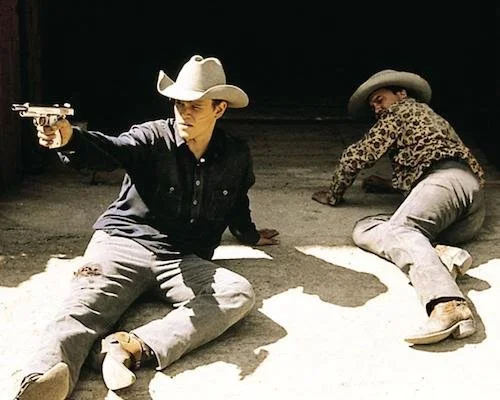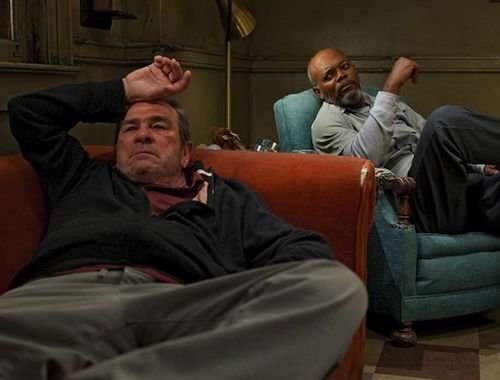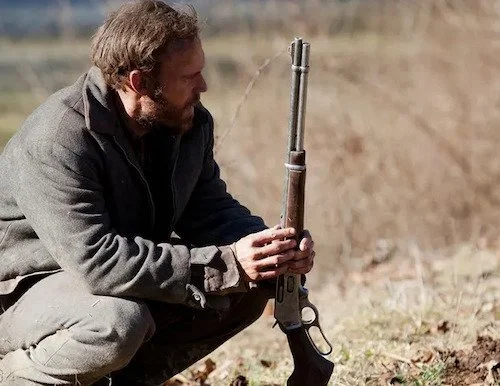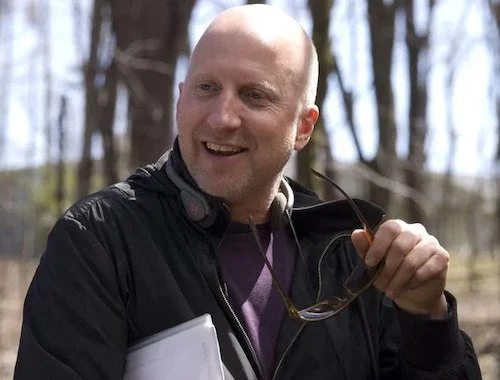Cormac McCarthy and Cinema
Written by Andreas Babiolakis
On June 13th, American literary icon Cormac McCarthy passed away at 89. One of the finest writers in American literature, McCarthy was known for his Southern gothic, vicious, and frigid depictions of national existentialism. He was an acclaimed writer for decades, starting in 1965 with The Orchard Keeper and releasing his final two novels — The Passenger and Stella Maris — together in 2022. We’re fortunate that he got his final works out into the world, but this is still a major loss. His voice was pivotal in the rise of the new era of American Westerns, particularly their upfront confrontations with death, isolation, atrocities, and one’s demons. He forwent many writing mainstays from sentence structure to even certain forms of punctuation, but that’s because he knew the English language better than most and was certain as to how he could break these rules. Let’s not forget that he won the Pulitzer-Prize for The Road, so he was clearly a master of his craft. There wasn’t a writer like him before or since.
McCarthy was no stranger to legacy within the world of literature, and he was also associated with cinema at least a little bit. It may not seem like it, but his ties to film are nearly as long as his writing career. I won’t pretend that every one of these works is great, but they’re at least all authentically Cormac McCarthy through and through. There is at least one film that is a masterpiece (you likely already know what it is), but any fans of the treasured author may want to check out more of the films below. Here are all of the films of Cormac McCarthy, from adaptations to originals.
The Gardener’s Son (1976)
Based on the first screenplay McCarthy ever wrote, this episode of the anthological series Visions aired back in 1977. We travel back to the nineteenth century and visit a South Carolina family weather poverty and personal turmoil. Unfortunately, this film/episode is quite difficult to get a hold of, and it will likely be a white whale for any McCarthy enthusiast.
All The Pretty Horses (2000)
After the success of Sling Blade, actor-turned-director Billy Bob Thornton leapt to his next project: an adaptation of the first novel in McCarthy’s Border Trilogy. All the Pretty Horses stars some major faces that were then on the rise (Matt Damon and Penélope Cruz) as well as some veterans (Sam Shepard and Bruce Dern, amongst others), but that’s all that can be said about it. Thornton prioritizes the central romance of the story while missing crucial themes and the overall tone of McCarthy’s writing (this may also be Ted Tally’s fault, but he did also adapt The Silence of the Lambs, so who knows).
No Country for Old Men (2007)
The film most frequently associated with McCarthy is the sensational adaptation of No Country for Old Men by the Coen brothers. It is the sole time that I think a McCarthy film is stronger than a novel, but that’s only by maybe a fraction of a hair. So far, this is the best capture of the dread McCarthy’s writing elicits from his readers; the Coens also replicate the author’s quirky sense of humour (fortunately, the sibling auteurs are on the same page there) and frightening depictions of violence to punctuate moments and fears. They even mimicked the suddenness of McCarthy’s writing with a still-infamous final shot that abruptly ends and leaves you out in the cold and having to face life without guidance: welcome to one of the harsh lessons taught by Cormac McCarthy.
The Road (2009)
The second-best McCarthy novel, The Road, got adapted by John Hillcoat. The result is this respectable effort starring Viggo Mortensen and a young Kodi Smit-McPhee (who never looked back after this breakthrough role). The Road manages to pick up on the urgency of McCarthy’s writing, as well as the spaces written in between. What Hillcoat misses is the spiritual nature that McCarthy somehow wove in his tales of dread, but McCarthy was one-of-a-kind in this way. The Road is a breathtaking novel, second only to Blood Meridian; it makes for a good-enough film that is effectively told despite its minor shortcomings.
The Sunset Limited (2011)
At the turn of the 2010s, McCarthy tried his hand at screenwriting again after his second play, The Sunset Limited, made its runs (he crowned it “a novel in dramatic form”, which excused its unorthodox nature). A few years after he starred in No Country for Old Men, Tommy Lee Jones — a great friend of Cormac McCarthy’s — directed and starred in this film version of McCarthy’s play (which the author adapted himself into a functioning screenplay). Released by HBO Films, Jones’ version of The Sunset Limited is a straightforward look at a tug-of-war between redemption and nihilism. The film got decent reviews thanks to the booming performances of Jones and Samuel L. Jackson, but the film resonates quite strongly with McCarthy aficionados because of the search-of-self at the heart of these philosophical disputes.
Child of God (2013)
James Franco has been a self-professed fan of McCarthy’s for years, and reportedly wanted to adapt Blood Meridian at some point (that never came to fruition, although his fanaticism for William Faulkner resulted in the films As I Lay Dying and The Sound and the Fury, so I wouldn’t be surprised if Franco were to adapt more of McCarthy’s works). For now, there’s Child of God: an adaption of McCarthy’s third novel from 1973. It isn’t very good. It is aesthetically rich but void of substance: an empty tribute to the visions of Cormac McCarthy without the inclusion of the author’s soul or the weight of the themes he writes about.
The Counsellor (2013)
The lone screenplay Cormac McCarthy wrote directly to the big screen, Ridley Scott’s The Counsellor contains all of the author’s depictions of hysteria within the Americas. However, this feels like The Sunset Limited a bit: antithetical to what a film should be, and a novel in film form (as opposed to a film outright). I feel a bit pressed to watch this film again, but I recall not liking it all that much when it came out ten years ago. I found this drug film messy, chaotic, and confusing, but I am aware of those that have defended the film like Guillermo del Toro and Richard Roeper, who insist that this is a misunderstood film that will be reassessed in the future. They may be right. In the way that McCarthy didn’t play by the rules of literature, he also went about screenwriting in his way, and perhaps that was lost on me when I saw The Counsellor.
Blood Meridian (?)
Finally. Blood Meridian is coming to the big screen after many failed attempts. John Hillcoat, who previously adapted The Road, is due to tackle this feature, and Cormac McCarthy was attached to the project: he would ensure that his magnum opus novel would be converted to the big screen in the right way. Who knows what will happen with the future of this project now that Cormac McCarthy has unfortunately passed; maybe Hillcoat will continue, but it won’t be quite what we could have had with McCarthy taking the lead on the project from start to finish. There is a glimmer of hope, however: Cormac’s son, John Francis McCarthy, was attached to the film as well (as executive producer, along with Cormac) and he may stay on should Blood Meridian come to fruition.
Andreas Babiolakis has a Masters degree in Film and Photography Preservation and Collections Management from Toronto Metropolitan University, as well as a Bachelors degree in Cinema Studies from York University. His favourite times of year are the Criterion Collection flash sales and the annual Toronto International Film Festival.

